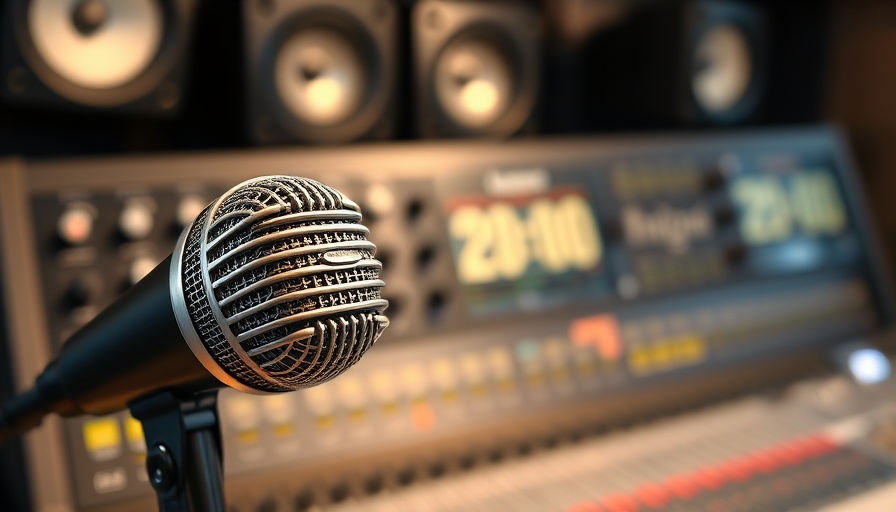
Navigating New Frontiers: Major Labels Team Up with AI
In a groundbreaking move, major record labels including Universal Music Group, Warner Music Group, and Sony Music Entertainment are reportedly in the process of negotiating licensing agreements with emerging AI firms Udio and Suno. This collaboration seeks to establish a pathway for how artificial intelligence can utilize copyrighted music while ensuring that original artists receive fair compensation for their work.
The Rise of AI in Music Production
With AI technology providing the power to generate music on demand—from pop hits to country ballads—Udio and Suno are transforming how we think about music creation. Aspiring artists can now produce an audio recording simply by inputting prompts that describe the kind of sound they are aiming for. For instance, they could request “a modern country ballad about unrequited love,” and the AI algorithms would conjure something unique based on enduring elements of music theory and structure.
Why Licensing is Crucial for the Music Industry
Licensing talks hinge on the pivotal question of compensation. Last year, both Udio and Suno faced copyright infringement lawsuits initiated by the labels. Given the rapid advancements in AI, these conversations have morphed from outright legal battles into negotiations striving for clarity and mutual benefit. The discussions aim to strike a balance: music companies want more control over their intellectual property, while AI innovators wish to maintain flexibility in experimentation.
Implications for Artists and the Music Scene
As these negotiations unfold, the broader implications for artists could be significant. Should these licensing deals finalize successfully, they may set a precedent for compensation structures that benefit not just the labels, but artists of all kinds. Just as in traditional contracts, equity stakes in AI firms could mean the possibility of reaping rewards if the companies flourish.
The Future of Music and AI Integration
As technology and creativity meld, potential outcomes are expansive. Could we see AI-generated top-charting hits in the future? Or might human creators and AI collaborate to craft innovative sounds unheard before? A marriage between the two could enrich the musical landscape, blending human emotion with the precision of technology.
Adapting to Technology: How Artists Can Prepare
Artists navigating this evolving landscape should consider how they can leverage these advancements. By understanding their rights and the technology available, creators can be proactive. Joining forces with innovations in AI may open new avenues for artistic expression while bolstering their careers.
Connecting Music and Technology: A Cultural Perspective
The encroachment of AI into the music domain raises questions about authenticity and artistic integrity. Music, which is inherently tied to human experience and emotion, now intersects with algorithms that analyze trends and patterns. How we respond culturally to these changes will shape not just music as an industry, but the very soundscape of future generations.
This discussion transcends mere technological advancement. It embodies a larger cultural shift regarding ownership, creativity, and the evolution of art in the digital age. As we stand on the brink of these changes, the music industry may just be at the dawn of a new era driven by innovation and collaboration.
Listeners and creators alike must stay informed as the dialogue between the traditional music sector and tech advancements unfolds. The future of our music landscape relies on both the preservation of musical heritage and the nurturing of new explorations through technology.
The time is now for artists to harness these technological tools while maintaining the heart of what makes music resonate: human connection and emotion.
 Add Row
Add Row  Add
Add 



Write A Comment